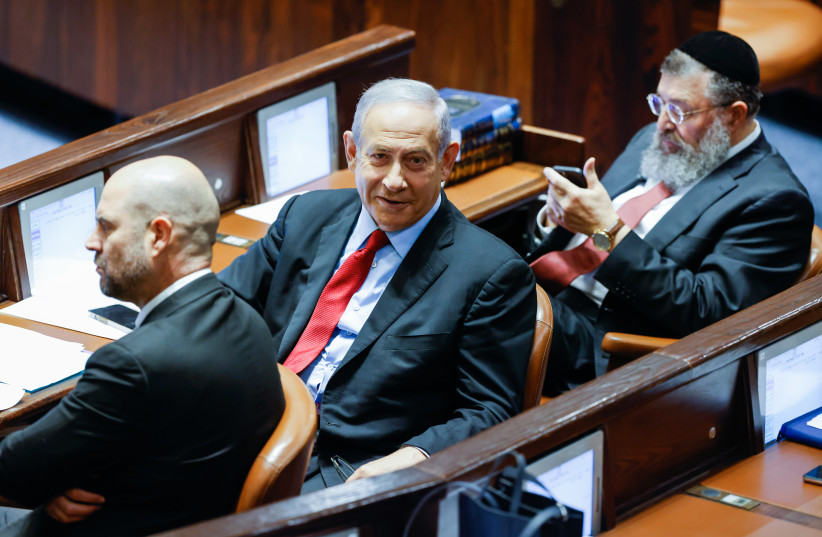With Israelis set to head back to the polls for the fifth time in the past three-and-a-half years, public opinion is divided with respect to how to view the situation.
Prime Minister Naftali Bennett and Alternate Prime Minister Yair Lapid announced on Monday that they would be dissolving the Knesset. A bill that would lead to its dissolution passed its initial reading with a vote of 110-0 on Wednesday.
As part of their coalition agreement, Bennett will be giving up his role as prime minister and Lapid will serve as caretaker prime minister until a new coalition is formed following the next election. Israelis will likely voting on October 25, based on a consensus among the coalition and opposition.
“I am happy that we are going to elections. I hope Netanyahu will be elected again,” Yael, a new immigrant from Paris, France, said. “I think he is more action-oriented than everyone else.”
Meanwhile, others have grown tired with the frequency of elections.
“I’m generally a voter but I’ve opted out in one of the past four [elections] because I was so exhausted,” explained Sharon, a New Jersey native who immigrated to Israel with her family when she was six years old.”

How the world views Israel's political chaos
In addition to the toll that elections have taken on citizens, the number of elections held in the past three-and-a-half years has had implications on how people around the world view Israel, according to Jack, an American citizen visiting his family in Israel.
“People are unhappy because the government has to be reformed,” he said. “We have a new election, and you don’t know what you’re going to get. How does that look to the world?”
When asked what should be done to remedy Israel’s fragile political system, Jack struggled to think of a viable solution.
“I think they don’t need a two-party system because that’s not enough, but they should certainly cut down a little. It’s hard because we have a democratic country but we don’t have the split between religion and state. You need to cut down on the parties, but then again Israel is the Jewish state so religion needs to have a say, but to what point? It’s a lot of questions to answer,” Jack explained.
David Levine, another voter, discussed the difficulty of implementing a new electoral system that would lead to less frequent elections.
“If there’s something that would actually work, then [I would support it], but I’m not just going to push for a change that anybody wants to make because it has to be done very carefully,” David said.
Government is 'making fun of its citizens'
That Knesset election results are determined through a proportional system certainly contributed to the struggle to form long-lasting coalitions. However, some voters took issue with the politicians themselves more than the system in which they are forced to work.
“I am going to vote, but I think that the government is making fun of its citizens by having so many elections. How can we trust our vote to make a difference if there have been so many elections in the past couple of years?” Jo, a lone soldier from Nice, France, asked. “At this point, it can’t even be counted as a democracy. The government is acting like children that can’t agree on a solution that will help the country.”
Itamar, another IDF soldier, believes that a complete restructuring of the Knesset will be most effective in addressing the needs of Israeli citizens.
“If new people come into power, rather than going in circles with the same politicians we’ve had for years, maybe we can find a better solution,” said Itamar.
The disillusionment that many citizens have adopted as a result of governmental turmoil has led some citizens to find other avenues through which they can improve society.
“In general the need to elect another prime minister and government makes me have more faith in the small-scale politics, more in my community,” Sharon reflected. “I invest much more energy in my neighbors and my friends than I used to and I see that as the place where I can make a change in my reality more than I do in voting.”
